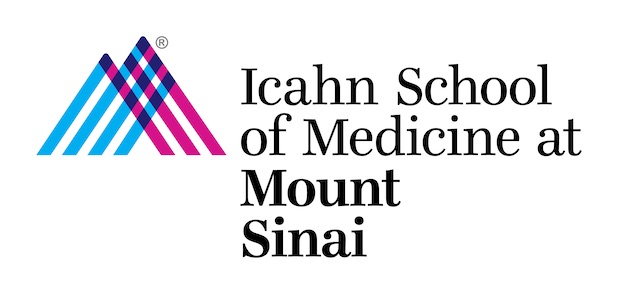Office-Based Palliative Care Program Design
What You’ll Learn
- Identify the key components of clinic development in terms of planning, mission and vision, core services, structure, and administrative oversight
- Implement a plan to develop an office-based program focusing on population, personnel, capacity, accessibility, and responsibility
- Develop processes for patient-care issues, including palliative care roles, responsibilities, and access, as well as a referral process and follow-up
- Create a process for early data collection at initiation of services
What You’ll Earn
To take this course, log in. Or, check here to see if your organization is a member.
LoginTake the course
Take the post-test
Complete evaluation
Download your certificate
Tools & Resources
Home to the National Consensus Project for Quality Palliative Care, the Coalition was founded by the leading hospice and palliative care organizations to coordinate and collaborate on issues and activities of importance to the interdisciplinary hospice and palliative care field.
Step-by-step tool to evaluate patient need, stakeholder priorities, organizational readiness, and sites of care for a new or growing community-based palliative care service.
Tools and technical assistance for developing a palliative care program in a community clinic or office setting.
Course Directors
Accreditations and Disclosures
Physicians
This activity has not been awarded contact hours for physicians. Physicians will receive a verification of attendance certificate upon course completion.
Physician Assistants
This activity has not been awarded contact hours for physician assistants. Physician assistants will receive a verification of attendance certificate upon course completion.
Social Workers
This activity has not been awarded contact hours for social workers. Social workers will receive a verification of attendance certificate upon course completion.
Certified Case Managers
This activity has not been awarded contact hours for certified case managers. Case managers will receive a verification of attendance certificate upon course completion.
Verification of Attendance (VOA)
All users that are not eligible for continuing education will receive a Verification of Attendance certificate upon completion of the course.
Course Media Instructions
Software Requirements: CAPC’s online curriculum, tools and technical assistance are designed to be fully compatible through multiple platforms: computer, smartphone (iOS or Android) or tablet running the following web browsers: Google Chrome, Mozilla Firefox, Safari, and Microsoft Edge.
Content: Each course is comprised of interactive learning components (articles, tools, or supporting materials), video and audio. The learner will be expected to complete various interactive processes such as matching, simulated clinical decision-making, fill in the blanks, and highlighting content.
To successfully earn credit, participants must complete the activity online, receive a minimum score of 80% on the post-test, and complete the course evaluation. A printable certificate of completion or a continuing award document specific to the discipline will be awarded.
Target Audience: Each program is developed for chaplains/spiritual counselors, nurses, physicians, physician assistants, social workers, case managers, palliative care program leaders, and healthcare leaders (hospital, health system and community care).
Activity Description/Statement of Needs: CAPC’s online curriculum provides training in two critical areas. Technical assistance courses are designed to help palliative care program leaders address key challenges such as implementing palliative care in community health care settings. Clinical coursework provides fundamental training in pain and symptom management, communication, and other key skills needed to work with patients with serious illness.
Disclaimers: The opinions expressed in the courses are those of the authors and do not necessarily represent the views of the sponsor, the educational partner, or the supporter. Please review complete prescribing information of specific drugs or combination of drugs, including indications, contraindications, warnings, and adverse effects before administering pharmacologic therapy to patients.
Activities do not contain information on commercial products/devices that are unlabeled for use or investigational uses of products not yet approved.
Faculty Disclosures and Conflict of Interest: It is the policy of CAPC to ensure objectivity, balance, independence, transparency, and scientific rigor in all CME-provided educational activities per the highest standards of ANCC and ACGME guidelines. There may be other organizations depending on the topic. For all courses, Faculty/Presenters/Authors/Content Reviewers complete conflict of interest forms to determine any potential bias or conflict of interest. Disclosures are available for each activity.
Copyright Information: All rights reserved by the Center to Advance Palliative Care (CAPC). No materials may be used or reproduced in any manner whatsoever without written permission except in the case of brief quotations embodied in articles or reviews.
Privacy Information: To read CAPC’s privacy policy, click here.
Course Faculty
Andrew E. Esch, MD, MBA. Consultant, Center to Advance Palliative Care.
Philip Higgins, PhD, LICSW. President Lighthouse Counseling of Salem, Inc.
Lynn Hill Spragens, MBA. President and CEO Spragens & Associates, LLC.
Jay R. Horton, PhD, ACHPN, FNP-BC, MPH, CENP. Director of Nursing Safety, Quality, and Performance Improvement Mount Sinai Hospital. Assistant Professor Department of Geriatrics and Palliative Medicine Icahn School of Medicine at Mount Sinai.
Peer Reviewers
Sivan Ben-Moshe, MD. Fellow, Geriatrics and Palliative Medicine, Icahn School of Medicine at Mount Sinai.
Sachin Kale, MD. Fellow, Geriatrics and Palliative Medicine, Icahn School of Medicine at Mount Sinai.
Katie Wang, MD. Fellow, Geriatrics and Palliative Medicine, Icahn School of Medicine at Mount Sinai.
Contact information: For answers to frequently asked questions about CAPC courses and CEs, read the Online Course FAQ. For all other questions, please contact support.

Provided by the Icahn School of Medicine at Mount Sinai.
Defining community-based palliative care: which patients need it, how it is delivered, and how it differs from inpatient palliative care.
Evaluating patient need, service requirements, care settings, and stakeholder priorities for the community-based palliative care program.
Translating needs assessment into service design for the community-based palliative care program.


